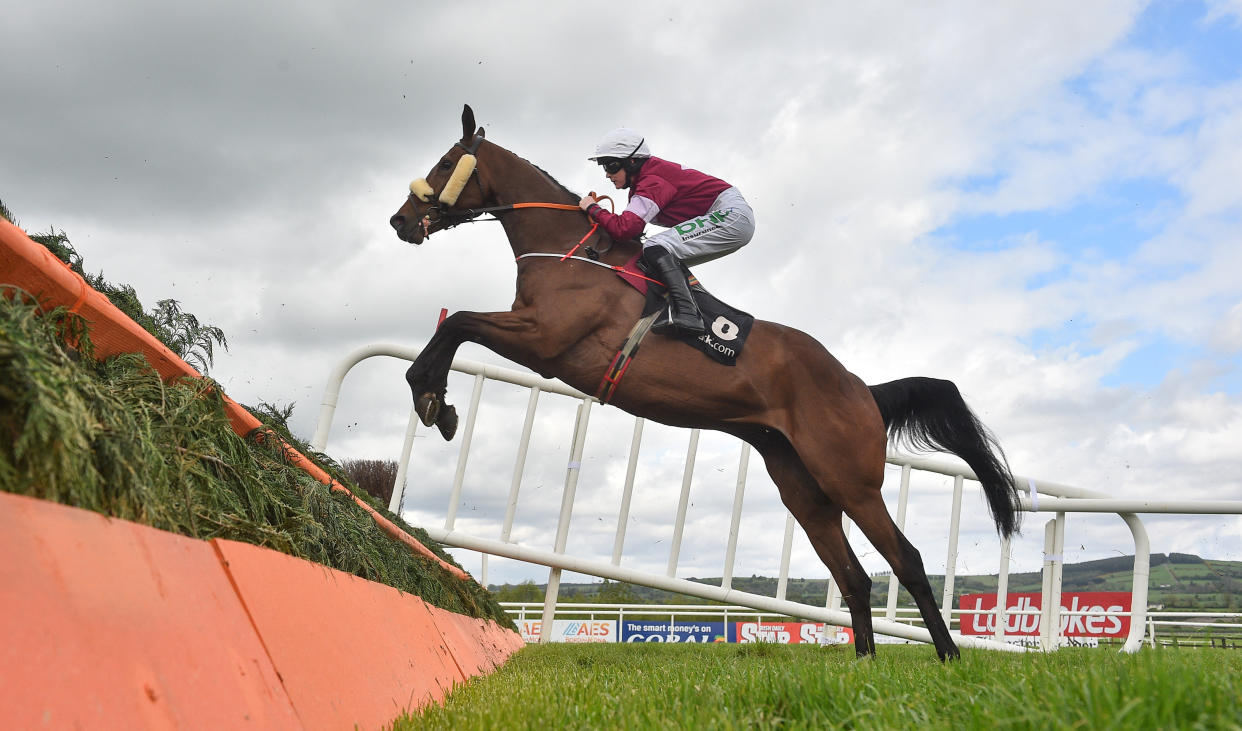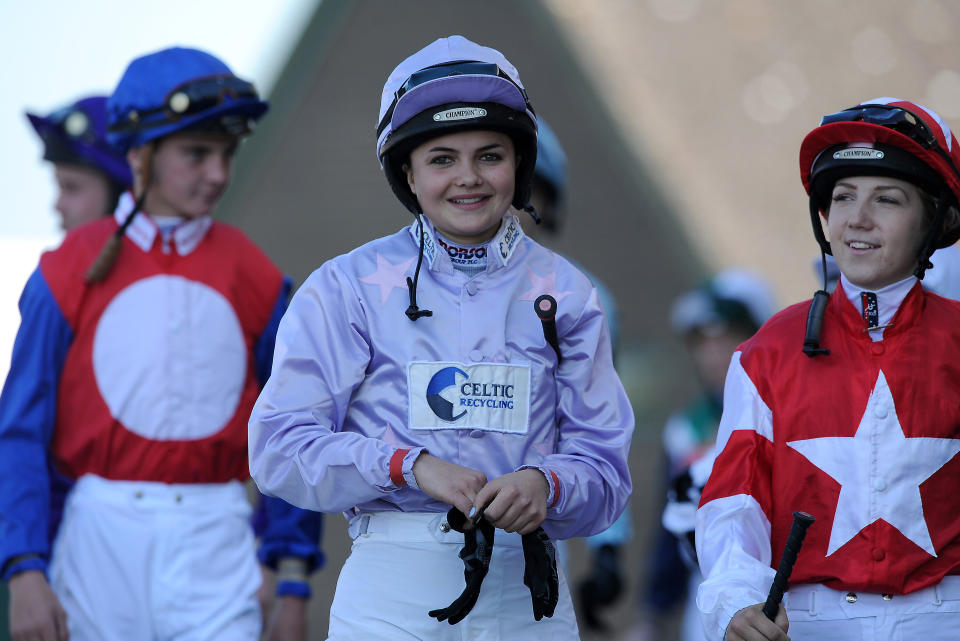Why 2019 is the year for female jockeys

Horse racing is a sport where male and female jockeys compete against each other in the same races, however, the sport still has its flaws when it comes to female representation and the treatment of females in the sport. There are still far more male jockeys competing at the elite level: male jockeys outnumber females by 50 to 1 in top races, and 7 to 1 at the professional level.
Another example? No female jockeys competed in this year’s Kentucky Derby – and none have won the prestigious horse race (six women have competed in the race in total, since Diane Crump became the first jockey to do so in 1970).
One reason there are fewer female jockeys competing – and winning – at the elite level is that trainers simply refuse to use female jockeys, despite evidence finding that female jockeys are every bit as good as their male counterparts, according to a 14-year-study by the University of Liverpool released in 2018.
And when females like Rosie Napravnik, two-time winner of the Kentucky Oaks, do make it to the elite races, they have to face heckling from owners, male jockeys and spectators, who would regularly shout things at her, like “Go home and have a baby!” and “Go home and stay in the kitchen”.
It’s not like female jockeys aren’t as strong and resilient as their male counterparts. They face frequent injuries like broken collarbones, broken legs – and worse. They also have to deal with the same pressures that come from having to maintain a very light weight, like eating disorders.
Back on this side of the pond, the opportunities for female jockeys to compete at the elite level are on the rise: female jockey Bryony Frost made history in March 2019 as the first woman to ride top-level Grade One Cheltenham Festival winner Frodon over jumps, to win the Ryanair Chase.
Two females rode in the Grand National, the biggest horse race in the country, in April 2019, Lizzie Kelly and Rachael Blackmore (Blackmore is the first female jockey in Ireland to ride a Grade One winner over jumps, and she’s got over 615 rides and 90 wins under her belt).
READ MORE: Rising sports stars to watch out for

Then there’s The Silk Series: in its third year, the series supports female jockeys with races at 15 top British racecourses, including Ascot and Chester (who are hosting for the first time this year), with prize money of £150K.
Jockey Megan Nicholls has been Silk Series champion in both 2017 and 2018, and was recently named Goodwood’s new racing ambassador for 2019.
2019 is also the first time there have been more female jockeys training in Ireland than men, with 15 female trainee jockeys and 14 men finishing Kildare’s Racing Academy and Centre for Education.
Ireland’s also getting in on the action of women-only racing with its inaugural Leopardstown Microsoft Cup, which drew in top jockeys from Ireland, England and France for a prize of €50,000 and was won by Hayley Turner.
The increasing visibility of these inspiring female jockeys gives the next generation of horse-mad girls a new set of role models. For many, jockeying is still very much a career path that’s in their blood (Megan Nicolls’ dad, Paul, was a champion jumpers trainer; Bryony Frost is the daughter of former jockey, Jimmy Frost). For those not so lucky to be born into the sport, spending all of your spare time around horses and working in stables is another way to get your foot in the door.
READ MORE: Why women’s football is finally being recognised for the amazing sport it is
One of the big debates in the jockeying world in recent years is whether or not female jockeys should be given a weight allowance (because they carry less weight than males): in 2017, France decided to give their female riders a 2kg weight allowance every time they rode in an effort to improve visibility and give female jockeys more rides. Japan followed suit in 2018, a move that some females in the sport find patronising... and others have been in favour of.
“If someone said to me women can’t be jockeys, I’d laugh in their face because women can do it and we’re proving now we can do it and we’re equal. Doors are opening and more women are coming into the sport,” jockey Harriet Tucker told Eclipse magazine (amazingly, she dislocated her shoulder during the 2018 Cheltenham Festival yet still managed to win the Foxhunter Chase).
“I like to be as tough as I can. Winning is more important than my arm. I had to lift the trophy with my arm shaking but I didn’t care. No pain no gain. I love the adrenaline, the thrill, the buzz.”


